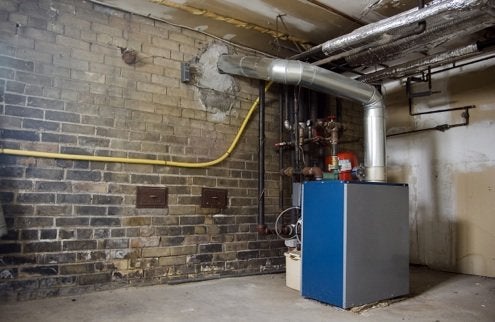
There are many factors to consider when making a decision about whether your roof should be replaced or repaired. These factors include cost, materials, size, timeframe, and cost. It is important to keep your roof as original as possible in order to preserve the aesthetic value of your house. Repairing it instead of replacing it is the best option for maintaining the architectural integrity of your home.
Prices
It all depends on what price you pay for it and how often you need it. You may think it's a good idea to save a little money and repair the damage yourself. But you could end up exposing your self to bigger problems. For this job, it is best to hire a professional. For a lower cost, you might also consider a contractor offering specials or other community assistance programs.

The extent of damage to the roof and the materials used will impact the cost of roofing repairs. The cost of repairs such as replacing the roof deck can be increased by the need for structural engineering. The type of roof as well as the location can also impact the cost.
Time frame
The type of roof you have and the complexity of your roof will affect the time required to repair or replace it. A typical roof replacement takes between 2 and 5 days depending on its size and shape. It may take days to replace a flat roof. Large asphalt shingle roofs can take many days.
A roof's lifespan is usually between 20 and 25 years if it has been properly installed. However, it may last significantly longer if it isn't. There are many roofing materials that have a different life expectancy so it is important to have a professional inspect your roof to ensure it is in good repair.
Materials
There are many choices when it comes to repairing or replacing your roof. The type of damage and the design of the roof should determine the material you choose. Some materials can be repaired or reused, while some others are 100% recyclable. Restoring your roof is not preventive.

Your roof is often exposed to the elements. It is crucial that you choose the right materials. It is important to select a durable material when choosing a new roof material. You can choose asphalt shingles or corrugated metal roofing.
FAQ
What does my SCA cover
Your SCA will specify the exact scope of work that needs to be done, including how long it will take, what materials need to be used, what equipment is needed, and whether any special permits are required.
Do I have to sign anything before starting work?
Yes, both parties must sign the SCA. This means that neither party can alter their minds later without the consent of the other.
Do I need a legal representative to sign my service agreement?
No. No. However, you might want to appoint a legal representative as a precautionary measure.
Legal representatives are individuals who act on behalf a person. If you are an entrepreneur, you may choose to have someone represent you professionally.
This could involve hiring a solicitor, accountant, or other professional. You could also appoint someone to take care of your business interests.
In most cases, the client will appoint a legal representative. Sometimes, however a vendor will hire a legal representation.
In both cases, having a lawyer means that you are legally covered.
Statistics
- (v) Place or places of performance of the prime contract and first-tier subcontracts estimated at $10 million or more, if known. (acquisition.gov)
- (3) The contracting officer may provide for a contract price adjustment based solely on a percentage rate determined by the contracting officer using a published economic indicator incorporated into the solicitation and resulting contract. (acquisition.gov)
- (ii) Name, address, and telephone number of each proposed first-tier subcontractor with a proposed subcontract estimated at $10 million or more. (acquisition.gov)
- (1) Except as provided in paragraphs (a)(4) and (a)(8) of this section, if the estimated amount of the contract or subcontract is $10 million or more, the contracting officer shall request clearance from the appropriate OFCCP regional office before- (acquisition.gov)
- Reasonable late fees go up to 25% per year on unpaid sums. (lawdepot.com)
External Links
How To
What should a Service Agreement include?
Any business relationship requires a Service Agreement. It defines what you want from each other, and how you will get it. The SA also details when and where each party should fulfill its contractual obligations.
The key elements of a successful SA are:
-
Both parties must agree on the scope and required services.
-
Information about payment terms, including the start and end dates for delivery of goods/services.
-
An agreed price for your project.
-
Any additional costs like VAT etc.
-
Discuss any other matters.
-
Who will take care of the job if it goes wrong?
-
How to resolve disputes
-
What happens if a party breaches the contract.
-
What happens in case of dispute.
-
When does the contract come into effect?
-
What happens if one party fails to perform?
-
How long can you wait to pay invoices
-
Who pays for travel expenses?
-
Where the money comes.
-
What happens if a client changes his mind?
-
What happens if the supplier isn't there?
-
Who has permission to view the site during construction
-
What happens if the customer cancels?
-
What happens if a product is not as described?
-
What happens if the supplier refuses to sell parts?
-
What happens if the equipment breaks down.
-
What happens if the project takes longer than expected.
-
What happens if you don't complete the work within the set timeframe?
-
What happens to the project if it isn't up-to-standard?
-
What happens if costs exceed expectations?
-
What happens to the materials if they are not delivered on-time?
-
What happens if the material arrives broken?
-
What happens to the products if they are not up-to-standard?
-
What happens if the job has to be canceled?
-
What happens when the company goes under?